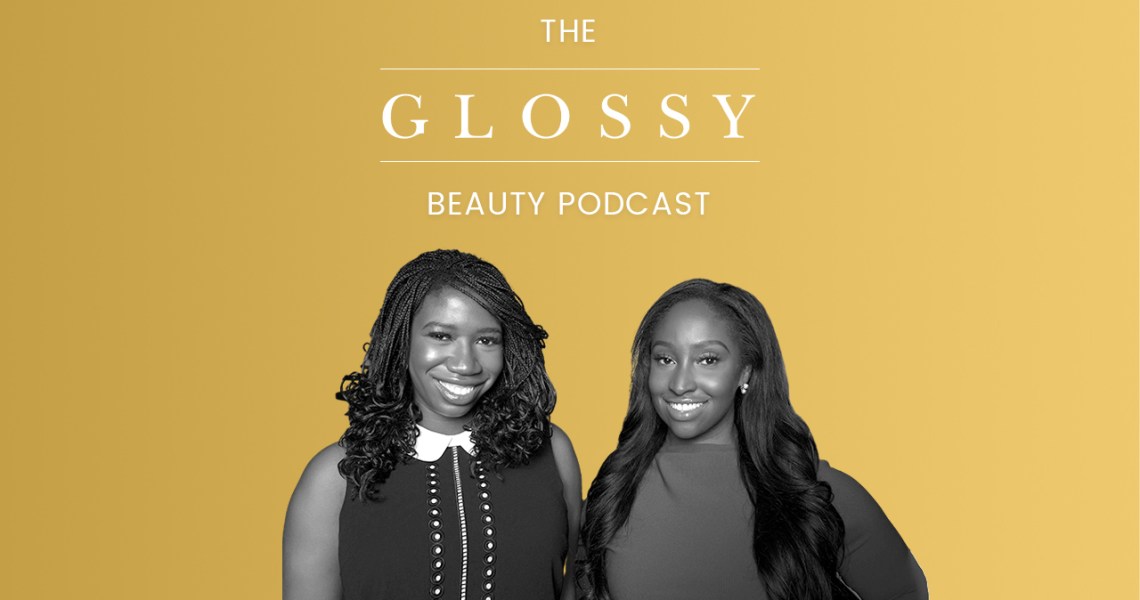Subscribe: Apple Podcasts | Stitcher | Google Play | Spotify
Beauty companies that fail to bring diverse employees into their teams, for executive-level to entry-level roles, aren’t just at risk of failing on a moral front — they’re also leaving money on the table, according to Mented co-founders KJ Miller and Amanda Johnson.
“Money talks. So maybe you don’t understand why it’s important that I have a lipstick that works for my skin tone, but you can understand that black women outspend their non-black counterparts by 80%,” Miller said on this week’s episode of the Glossy Beauty Podcast. “The smart investors got it and they are now investors in a really successful brand, and the other investors didn’t. And that’s on them.”
Miller and Johnson graduated from the same 2014 class at Harvard Business School, and launched Mented in January 2017. Sales grew by roughly 400% in the following year, during which — after pitching 80 VCs — they raised a pre-seed investment of $1 million. In 2018, the company raised $3 million in further funding.
In Johnson’s view, “Diversity in beauty has always been ‘a trend.’ Sometimes it’s really up, sometimes it’s really down. It depends on what models are on the runway, what’s chic in a season,” she said. “But the reality is people of color have always been around.”
Regarding the killing of George Floyd and the protests that continue to sweep the country, Johnson acknowledged the gravity of the climate, especially as black founders and leaders.
“We’re making it,” she said. “The thing that continues to brighten the day and push us forward is obviously, our families and our passion for the thing we’re building, but also our customers. We have had some of the most heartfelt emails and social comments over the last couple of months and weeks, whether it was about Covid[-19] or about social injustice, encouraging us to keep going, to keep fighting, that our company matters, that what we’re doing is important. Sometimes just that one message is the thing that can keep you going in what is an incredibly difficult day.”
Ad position: web_incontent_pos1
Here are a few highlights from the conversation, which have been lightly edited for clarity.
The lightbulb moment
Johnson: “Diversity in beauty has always been ‘a trend.’ Sometimes it’s really up, sometimes it’s really down. It depends on what models are on the runway, what’s chic in a season. But the reality is people of color have always been around. We, in and of itself, our existence is not a trend. When KJ and I decided to start a business — we definitely knew we wanted to work together coming out of business school — we would meet periodically to talk through business ideas, things that excited us. One night we were just talking about life hacks, which led to beauty hacks. I said something like ‘I’ve been trying to find the perfect nude lipstick for like three years.’ She was like, ‘Oh my god, me too!'”
Pitching investors in the language they understand
Miller: “When you’re talking about a product that almost none of them have any experience with and about founders that don’t look like the founders who typically sit across the desk from them, that was an uphill battle. One of the things I would focus on in the decks I would create is the numbers. Money talks. So maybe you don’t understand why it’s important that I have a lipstick that works for my skin tone, but you can understand that black women outspend their non-black counterparts by 80%. You can understand that my dollar is just as green. I’m unsatisfied, but I’ve got plenty of money to spend and I’m spending more of it. You get that there’s opportunity there. We would always try to lead with that, and the smart investors got it and they are now investors in a really successful brand, and the other investors didn’t. And that’s on them.”
Diversity and inclusion is more than a social media post
Miller: “That’s why Sharon [Chuter, CEO of Uoma Beauty] started this ‘Pull Up or Shut Up’ hashtag. It’s like, ‘Look, I don’t want to just see your black tile on Instagram. I want to see the black people in your executive leadership team. Then I’ll know you do stand with us, you do care about us. You care about the fact that I’m releasing products for black people, so I gotta have black people in my board room.’ I think any company that’s not committed to that will and should see their revenues start to decrease.”
Leading during this cultural moment
Johnson: “We’re making it. The thing that continues to brighten the day and push us forward is obviously, our families and our passion for the thing we’re building, but also our customers. We have had some of the most heartfelt emails and social comments over the last couple of months and weeks, whether it was about Covid[-19] or about social injustice, encouraging us to keep going, to keep fighting, that our company matters, that what we’re doing is important. Sometimes just that one message is the thing that can keep you going in what is an incredibly difficult day.”




